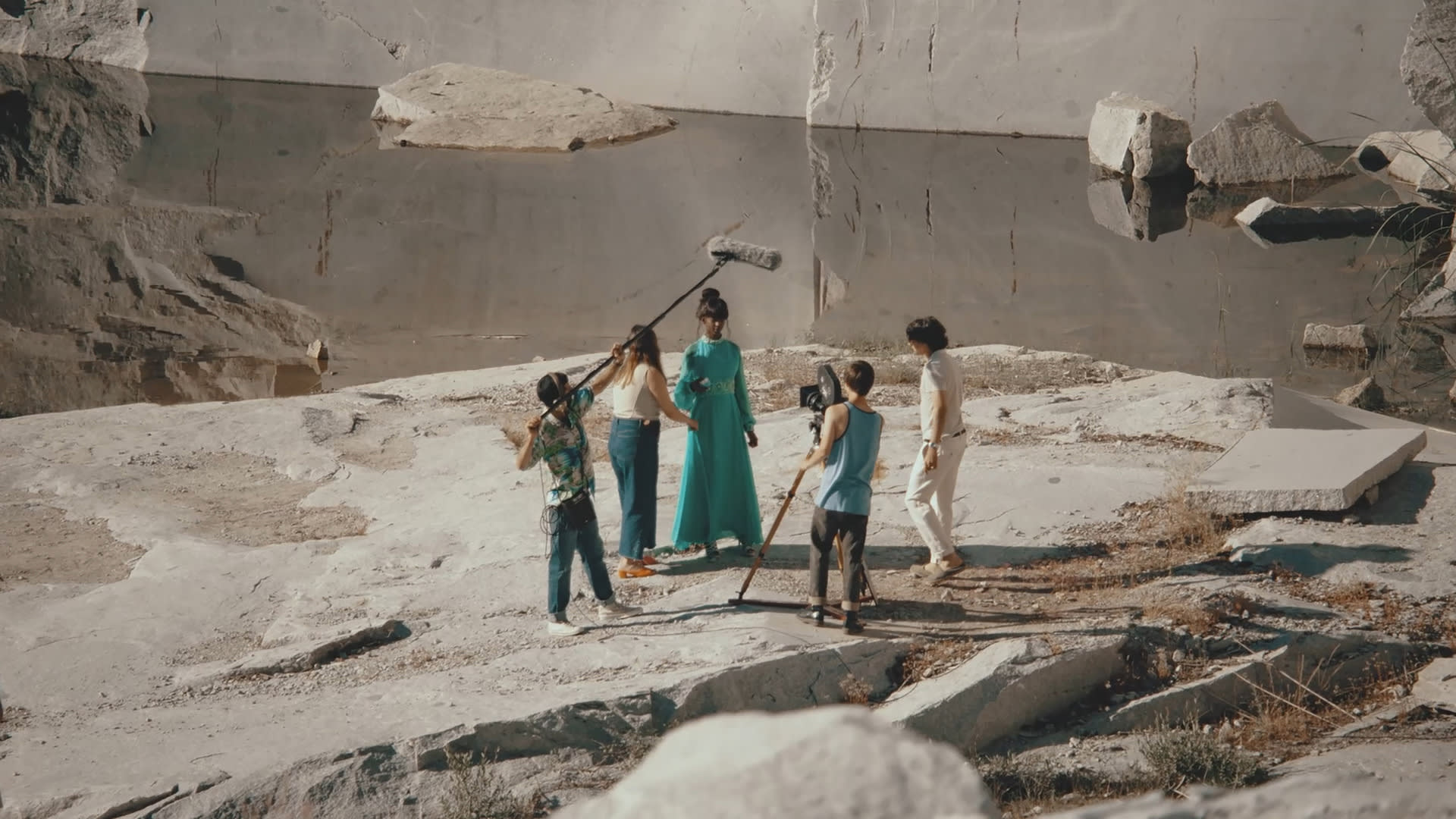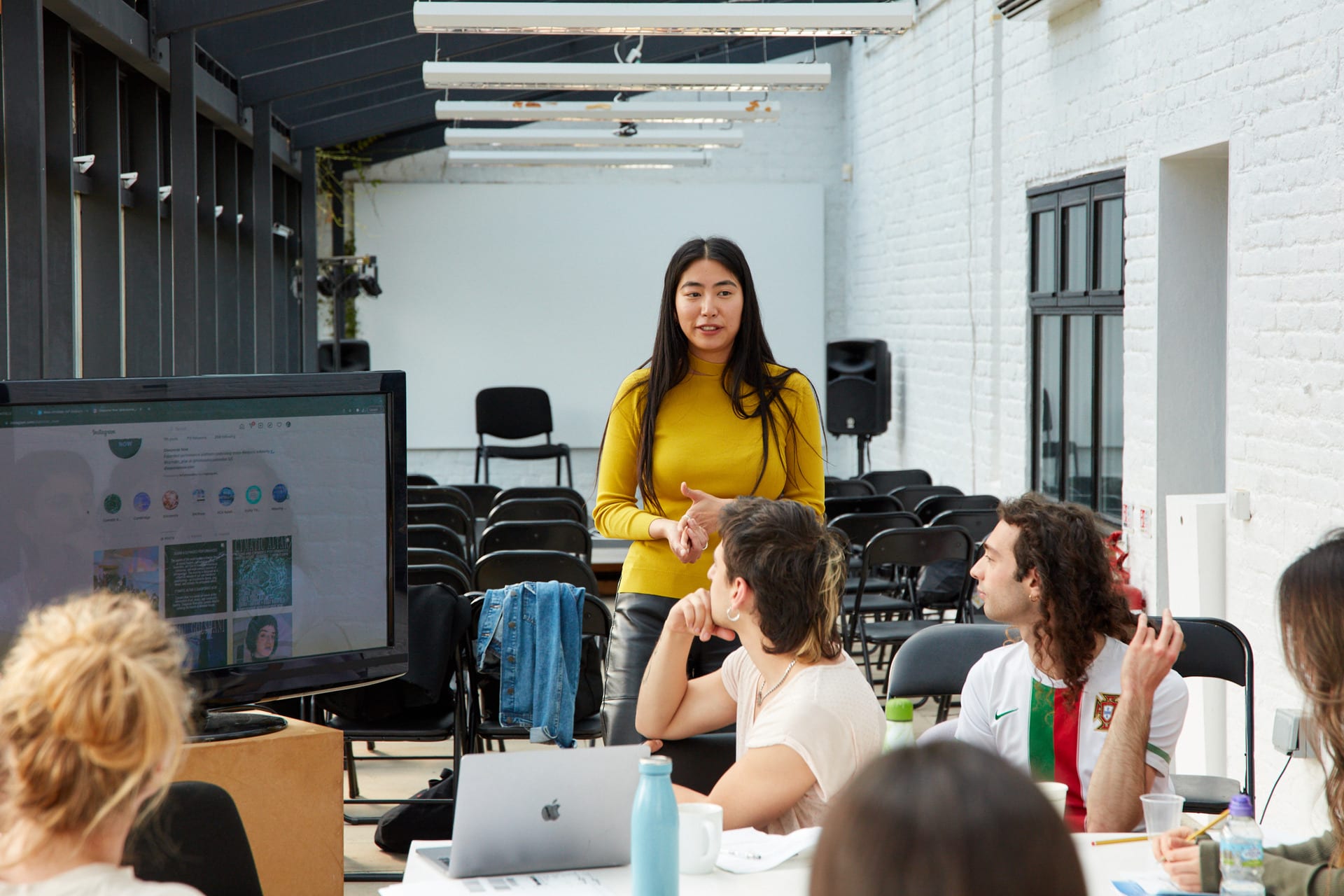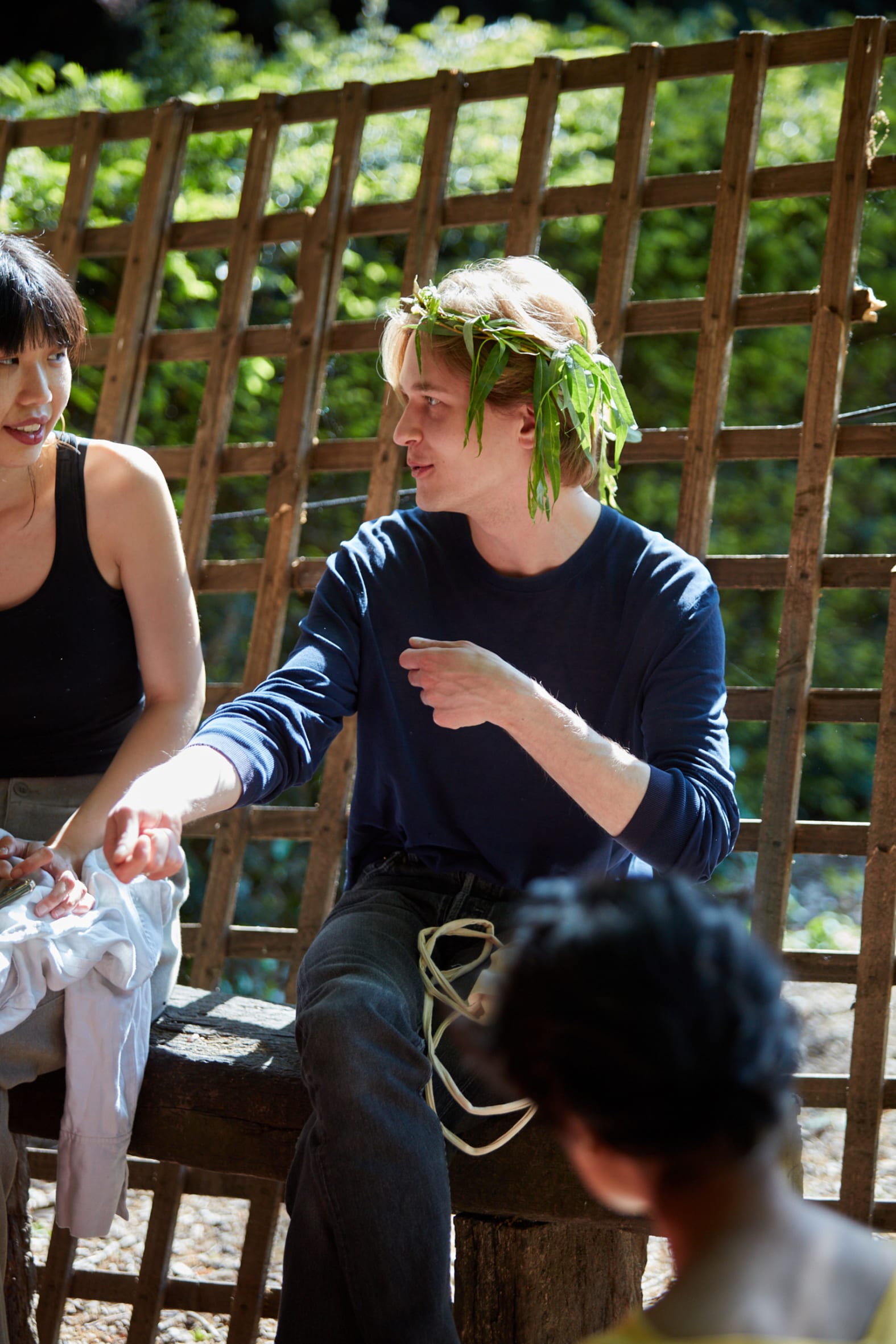Grace Ndiritu - An Absolute River* was an exhibition, running from 11th May - 16th July 2022, a public programme, which took place on 13th and 14th May, and an accompanying publication, at LUX, London.
The exhibition and programme called upon artists to expand the public’s horizons of temporal divides of past, present and future. Arising from the urgency of the global pandemic which has caused us to question the dominance of linear time, the artists investigated different subjectivities of time through moving image, live performance, workshops and text. The film-based exhibition was dedicated to the British Kenyan artist and activist, Grace Ndiritu (b.1982), whose practice is deeply concerned with our contemporary world, seeing it through the twin lenses of healing and spirituality, by finding alternative ways of living. Her archive of over forty 'hand-crafted' videos; post-hippie, pop-abstraction collages and shamanic performances reflect her alternative ways of looking and seeing the world through spiritual practice.
Inviting audiences to immerse themselves in Ndiritu’s two films: “A Week in the News: 7 Places We Think We Know, 7 News Stories We Think We Understand” (2010) and “Black Beauty” (2021), the exhibition reflected the artist’s explorations of “deep time”. The two works stood in dialogue with each other to enable the viewers to witness a continuity and development between the artist’s ideas across eleven years. Ndiritu’s intermediary film “Raiders of the Lost Ark” (2015) was screened online for the first week of the exhibition. Her films blur the lines between different time frames and explore themes of media, authorship and historical narratives, whilst expanding on notions of temporality.
Grace Ndiritu’s debut short film “Black Beauty” has been selected for prestigious film festivals including 72nd Berlinale in the Forum Expanded section (2022), 32nd FIDMarseille (2022), and British Art Show 9 (2022). Most recently her work has been featured at Flat Time House (2022), British Art Show 9 (2021/2022), Nottingham Contemporary (2021) and Kunsthal Gent (2021).
*Grace Ndiritu - An Absolute River’s title was derived from Borges’ theories on the fluidity of time. Borges features as a fictional protagonist in Ndiritu’s “Black Beauty”, and his notion of “An Absolute River” was inspired by Heraclitus’ “No man ever steps in the same river twice”.
~
In the accompanying public programme, artists Rieko Whitfield, Serena Huang and Dr Jason Allen-Paisant guided audiences through an atemporal journey. Inspired by Jorge Luis Borges’ ideas around the mysterious nature of time, the exhibition and programme explored alternative ideas of time to deconstruct widely accepted linear narratives.
The three contributors in the live programme each deal with critical conceptions of time in their practice. Visitors to the workshop led by Rieko Whitfield reflected on past histories through non-linear writing activities and guided meditation. Serena Huang invited her participants to reimagine potential futures using found objects to create a temporary work of theatrical art. Performing a soundscape with spoken word, Dr Jason Allen-Paisant explored the ways in which sound evades temporal categorisation and affects us differently to visual representations. The audience was invited to contemplate an unfinished past and imagine futures beyond linear time. The accompanying publication “Grace Ndiritu: An Absolute River” offered different perspectives of temporality, and gave audiences opportunities to interact with these themes in a tangible and enduring way.









